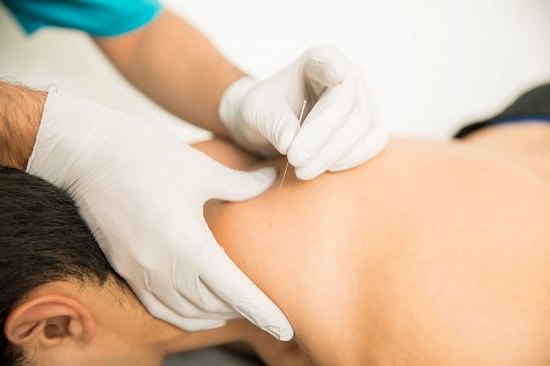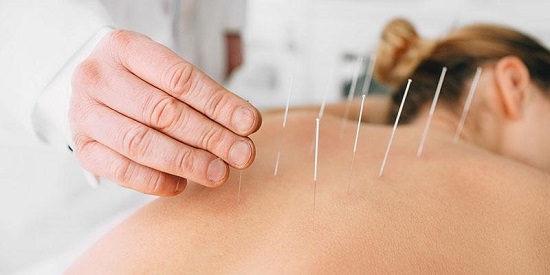Ever considered getting a dry needling procedure done? Read these pros and cons of dry needling before making a decision!
What is Dry Needling?
Dry needling is an alternate medicine therapy that offers muscle pain relief and helps improve the range of movement in joints. Dry needling was developed in the 1980s and is similar to the Chinese acupuncture technique but is rooted in Western medicine. It is infamous to relieve musculoskeletal conditions involving the shoulder, neck, heel, hip, and back such as:
- Tennis elbow
- Migraines
- Phantom pain
- Tendinitis
- Plantar fasciitis
- Sciatica
- Carpal tunnel syndrome
During the treatment, a physical therapist inserts fine, titanium needles into your muscles in specific areas known as myofascial trigger points. These points are small and painful muscle knots. A trigger point is a tight band within a muscle fiber that can impair function, restrict the range of motion, refer pain or cause local tenderness. The band can become a knot if left untreated. Pain relief occurs when the needle causes the muscle to twitch in response, increasing blood flow, causing muscle relaxation, and reducing tightness. The needle may cause a small lesion which triggers satellite cell migration to the area that repairs the damage. It is a method to encourage your body to heal itself naturally. The needles do not contain any medication, hence the term ‘dry’ needling.
The needles are left in one place for a few seconds or up to 10 minutes, depending on the amount of tension in the muscle. It is a minimally invasive and comparatively safer treatment that is effective when used with other therapies in relieving both acute and chronic pain. It is an outpatient procedure that a physical therapist, chiropractor, or orthopedic doctors perform. Dry needling therapy involves multiple sessions depending on the individual patient’s case.
Pros and Cons of Dry Needling
Pros
Dry needling therapy is precise as it targets painful trigger points. It shows faster results in comparison to manual therapy as it reduces pain, swelling, and spasms effectively. Besides, it increases mobility, relieves chronic pain, and reduces muscle tension.
It is minimally invasive and comparatively safer. The treatment is effective in treating sports injuries. You can use it in combination with other therapies to provide faster and better healing.
Cons
If the therapist doesn’t sterilize the needles before using them, it can trigger an infection. Dry needling can result in a temporary increase in pain within 24 to 48 hours. The pain may subside on its own or after stretching or lightly massaging the affected area. Bruising or bleeding can occur sometimes, and those with bleeding problems or on blood thinners
are more at risk.
Fatigue, tiredness, or fainting can occur if you are dehydrated, hungry, have low blood pressure, and are old or weak. Skin rash may develop, as an allergic reaction to the titanium needles. Other symptoms could include itching, redness, or even anaphylactic shock.
Rarely, injuries like nerve damage and paralysis can occur if the treatment is done by untrained professionals. Dry needling is an expensive therapy as it needs specialized equipment and trained therapists. Usually, insurance cover is not available for this therapy.
Pneumothorax or collapsed lung is a rare side effect of dry needling. You can avoid it by getting the treatment done by therapists who have proper training and certification. Evidence of the long-term benefit of dry needling is not available at present.
Who Should Get Dry Needling
If you suffer from any of the following issues, then you can get dry needling as it will ease your symptoms.
- Joint
- Disc or spinal issues
- Musculoskeletal pain
- Pelvic pain
- Tension headaches
- Lower back pain
- Repetitive motion disorders
- Phantom pain
If you belong to any of the following categories, dry needling is not advisable for you.
- If you suffer from an infection
- Pregnant women
- Children
- You’re on blood thinners
- Have a bleeding disorder
- Low immunity
- Have a needle phobia
- Diabetic
- Have epilepsy
- Lymphedema
- vascular disease
If you’re prone to allergies or you’re on some medications already, avoid getting dry needling. Make sure to have a word with your therapist before getting dry needling. Share all your health concerns with your therapist and keep these pros and cons of dry needling in mind, only then make an informed decision.



